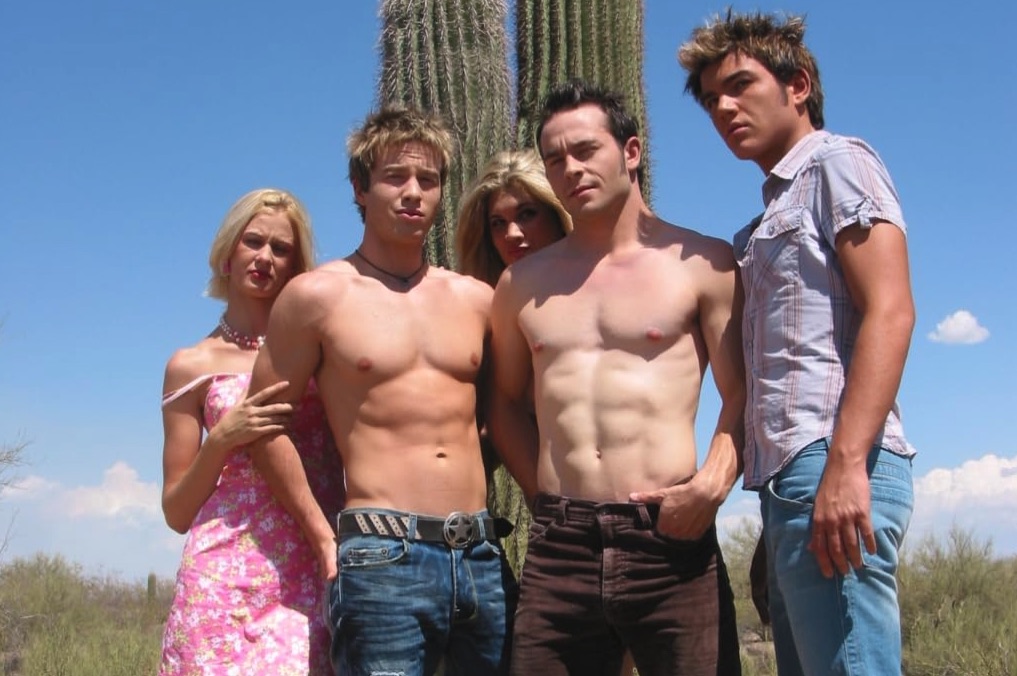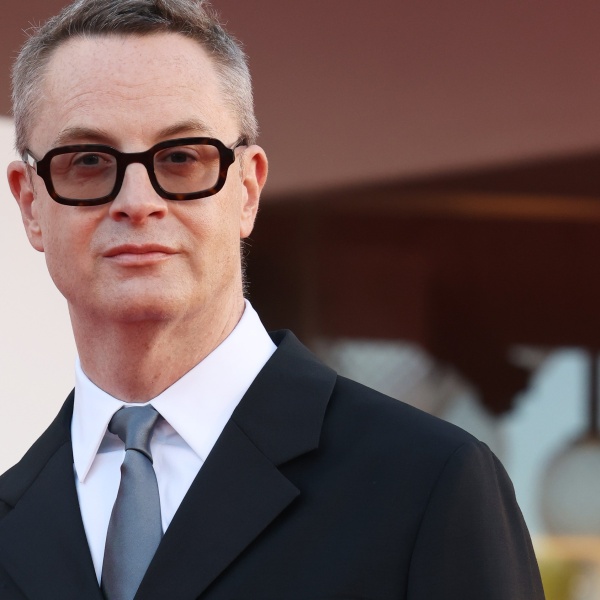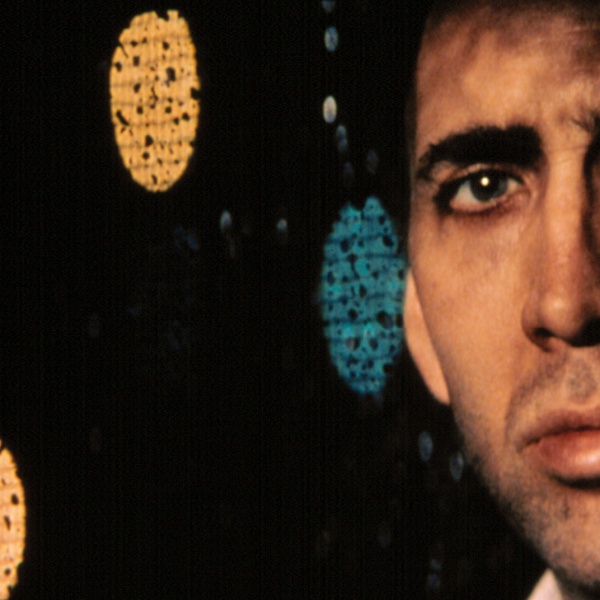Sometime in the summer of 2007, I helped one last customer buy office supplies, logged out of my register, and told my boss I was going on my lunch. I was seventeen years old and working at Staples, and though I hated it, I loved that our store was located in a strip mall right next to a Hollywood Video. I’d fallen into a nice little routine: a slice of pizza at the shop down the row, then a DVD rental of something my parents wouldn’t have approved of. After all, I was seventeen; the world of R-rated movies was finally mine, no parental accompaniment required.
On this random day in 2007, I took a chance: I browsed the store’s paltry LGBT Films section. (And by “section,” I mean “half a shelf.”) I usually walked past it quickly, hoping no one would notice that I tried to catch a glimpse out of the corner of my eye. This time, though, I stopped, and almost immediately one drew me in.
The movie was called “Eating Out,” and on the DVD cover was someone I recognized: Season 1 “American Idol” finalist Jim Verraros. I’d watched the show with my parents and I loved Jim’s voice, and I remembered the way my dad turned around one night, exasperated, and asked me, “Why do you always like the gay ones?” The answer was obvious, but neither of us was ready for it then.
Dad was right?! Jim Verraros is actually gay?!
I had to see this. I no longer remember the actual moment itself; I must have blacked out. I just know that renting “Eating Out” from Hollywood Video was the first publicly gay thing I ever did, the first time I ever let the mask of the closet slip. I slid the DVD into the pocket of my khaki cargo pants and felt it pressed against my leg for the remainder of my shift, a reminder that I had something exciting and dangerous to watch when I got home.
“Eating Out,” the first film in what would become a five-movie series, premiered twenty years ago today at the Phoenix International Lesbian and Gay Film Festival. It’s about a straight guy named Caleb (Scott Lunsford) who’s fed up with dating. After his gay roommate Kyle (Verraros) tells him that gay guys have it so easy they could, in fact, sleep with a girl, Caleb pretends to be gay to get with Gwen (Emily Brook Hands). It’s a comedy of errors and mistaken identity, a sexually-confused melange of mishaps and pratfalls. I loved it then, and I love it now.
“It does not hold up to me,” director Q. Allan Brocka told IndieWire on a recent Zoom call. I told him that I disagree; the writing is snappy, and though its low-budget status is evident, all of the actors have excellent comedic timing.
Jim Verraros, too, told me that he finds the movie outdated. “If you hear some of the quips and the one-liners now … ugh, it’s not so relevant now,” he said. But that’s part of the fun of it, and it’s part of why “Eating Out” has endured.

For example, instead of calling someone a “bitch,” Kyle says she’s being “a real Meredith Brooks hit single.” If gay people were the target audience for that joke in 2004, they’re certainly the ones who’ll still get it in 2024.
The movie was shot in ten days on a budget of $43,000, made because Brocka met Michael Shoel, head of Ariztical Entertainment. The DVD sales company was looking to get into production; as long as they could guarantee video stores at least two shots of full-frontal male nudity, he could guarantee $60,000 in pre-sales.
Brocka had a script sitting in a drawer that he’d written in film school at CalArts, which he mostly wrote because he wanted the cute guy in his screenwriting class to read something raunchy. He sketched out what would become the seventeen-minute phone sex sequence in “Eating Out,” and his classmates ate it up. Inspired by ’80s campus sex comedies like “Porky’s” and “Revenge of the Nerds,” he filled out the rest of the feature, and he remembered the script when Shoel asked if there was anything they could produce quickly and sell.
“There was no full-frontal nudity in ‘Eating Out’ in the original script, but I was like, why not?,” Brocka remembered. “There are boobies in those other movies? These’ll be our boobies!”
Brocka and Shoel figured they’d make a quick little profit, which they planned to split. To their surprise, “Eating Out” pulled in more than $2 million in DVD sales and topped LGBTQ+ video charts for years.
“There’s a place for everything; there’s a market for everything,” Verraros said he quickly realized. “It didn’t have to be Hillary Swank in ‘Boys Don’t Cry.’ I don’t think our stories all have to come from this place of doom and gloom, and suicidal thoughts, and who doesn’t accept us, and the psychological trauma that [being closeted] can cause. I think that there’s beauty to how we live our life too, and a very frivolous sort of sexual empowerment that can come from being us, too.”
Verraros had been out before “American Idol,” chronicling his early experiences with guys on Livejournal. When he signed on to what suddenly became the most popular television show in the country, the gay press caught on. FOX suggested he pull his Livejournal from the web, which he did. “I didn’t really think too much about it at the time,” Verraros said. “I was just willing to be very cooperative, and do what the major network told me to do.” He would come out in The Advocate several months after the season ended, and for years he was the only out “Idol” alum… and, furthermore, one of the only visibly “out” people in entertainment.

At the same time, Brocka was writing “Idol” recaps for that very same magazine. “Jim was kind of sending all of the gay vibes,” Brocka said. “You know how you’re like, ‘He must be one of us!’ Eventually, when he did come out, I was so excited and thrilled.”
When it came time to cast “Eating Out” a few years later, Brocka wrote Verraros what he called a “fan letter,” begging him to take a meeting. Verraros wasn’t sure he was going to pursue pop music, hoping to get on Broadway instead; he leapt at the opportunity to be in the film, appreciating that script was “such a fun take on a queer ‘American Pie.’”
After “Eating Out” premiered, Brocka spent a year touring the movie on the festival circuit. “I traveled around the world to these film festivals, in rooms full of people who had never seen anything like this on screen,” he said. “People laughing, and then swooning, and then swarming the actors after the Q&A’s. It was an amazing, incredible ride.”
Critics, however, were unkind. “I was sort of used to negativity from ‘Idol;’ I had gotten quite a bit of it,” Verraros said. (Ah, that Simon Cowell…) “I think that people sort of wanted our film to be something different than it was.”
Brocka, too, remembers the negativity, including one TV Guide review that insulted Lunsford personally, going so far as to call him out by name and suggest he should die. “It’s not an amazing film, but it just spoke to people in a way that we wanted to be spoken to,” Brocka said. “I made something that I wanted to see and hear.”
It’s something I needed to see and hear, too. Watching that movie in the quiet of my bedroom late that night felt like a peek into my own future. Sure, “Eating Out” is an over-the-top, heightened, silly version of out gay life, but it was my first glimpse at a world where being queer was the default, one where straight people were the butt of the joke. When I eventually got to college and started to meet other gay people, life wasn’t like “Eating Out,” but I discovered something unexpected: just about every other queer person I came across somehow knew these movies, too.
“I want queer kids who are watching this to not just get titillated, but to realize that it’s acceptable, and it’s sexy, and we can talk about these things, and we have these experiences,” Brocka said, “And you know, you’re not the only one.”
“I just love that they are a moment in time, and they will be there forever,” Verraros said. “I look back with such pride. I think whether people want to give it credit or not, I think because those films exist, we’re given so many incredible films today.”
Brocka agreed that “Eating Out” opened doors, especially in his own filmmaking career. While the first “Eating Out” has an all-white cast, the Guam-born director told me he pushed to include people of color in later films like “Boy Culture.” He noted that Verraros was the only out actor in that first installment, “but by the third one all of the principals were queer. So that’s how fast that was changing.”
Nowadays, he’s putting the finishing touches on a feature called “Love & Lockdown,” a romantic comedy about a trans man who gets stuck back home in the Philippines during the early days of COVID-19.
Verraros got out of the game for a while, but he’s dipping a toe back into the entertainment world, too. He released a banger called “Take My Bow” in 2023, and it reached #5 on a club-music chart in the United Kingdom, sitting alongside tracks by Kylie Minogue and Calvin Harris.
Mostly, he’s happy to be “focusing on the creativity that you can bring into the world, and not staring into the darkness,” he said, “which is very easy to do.”





